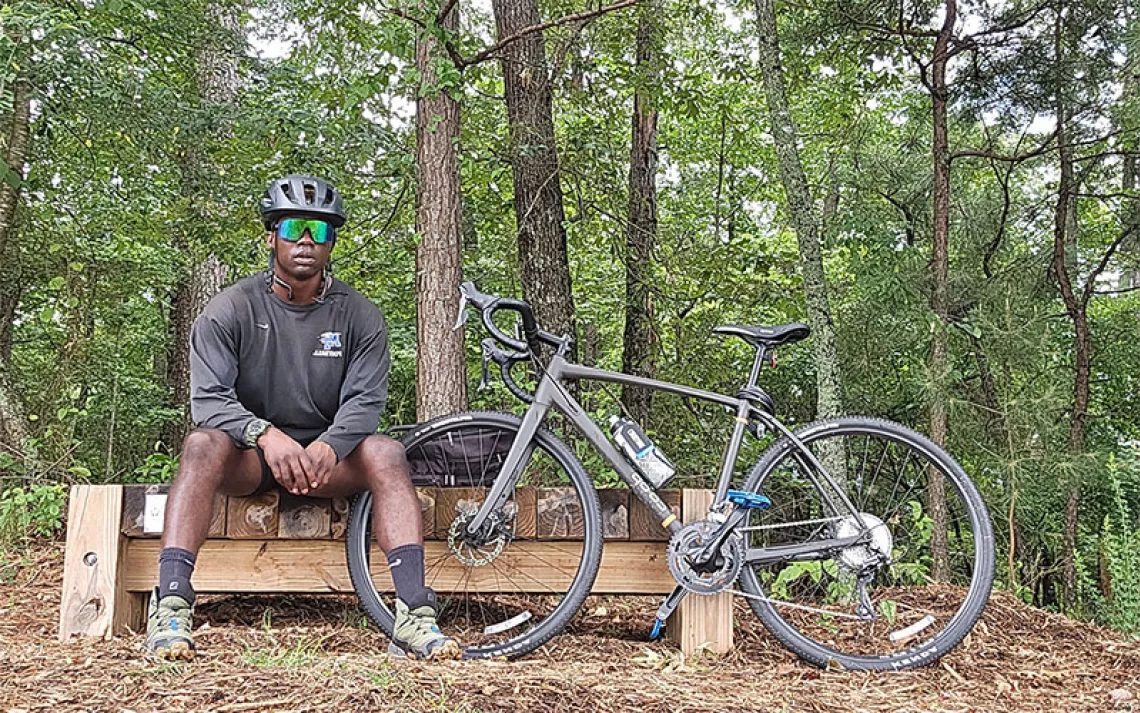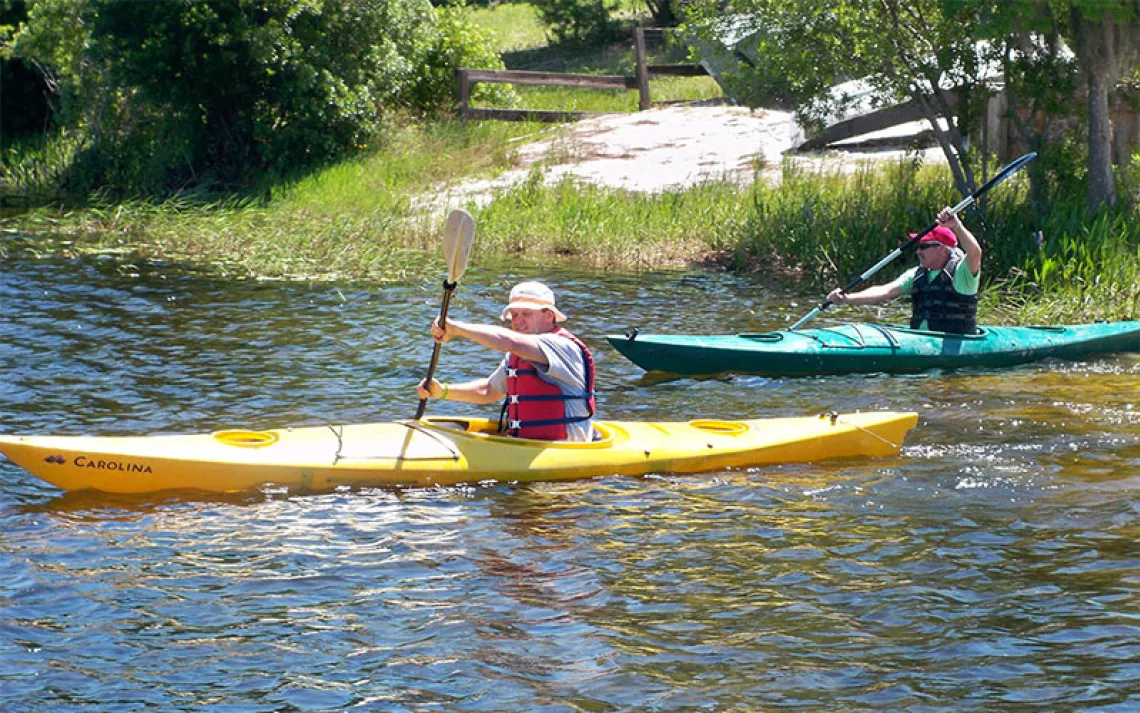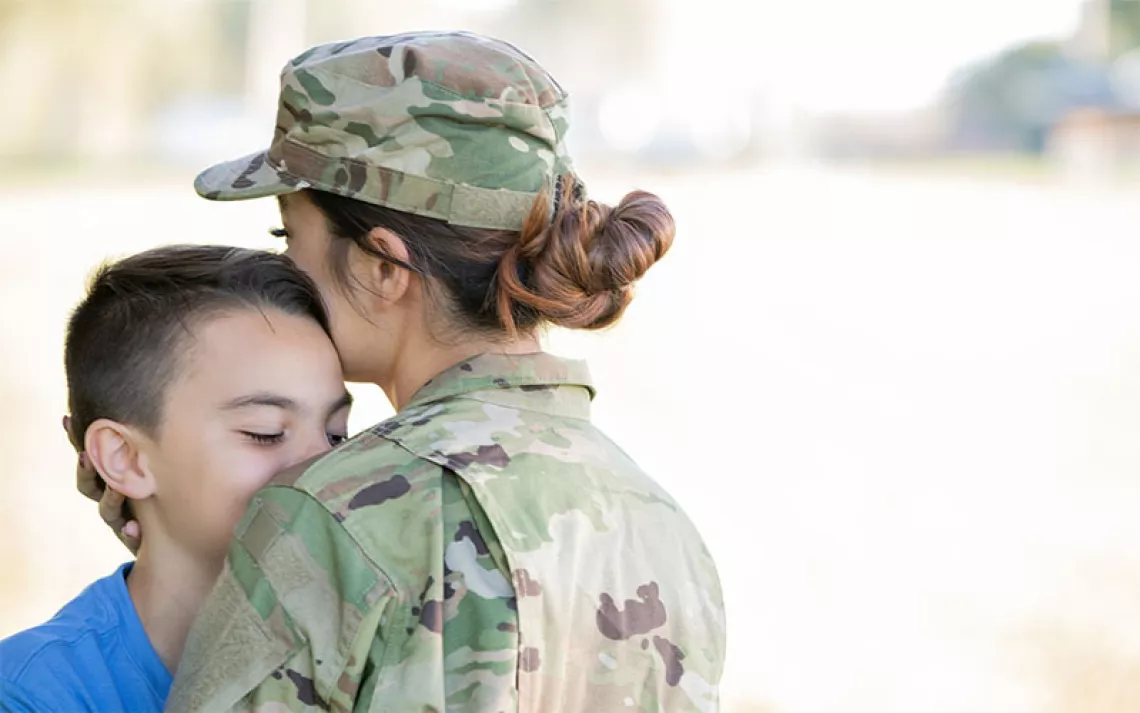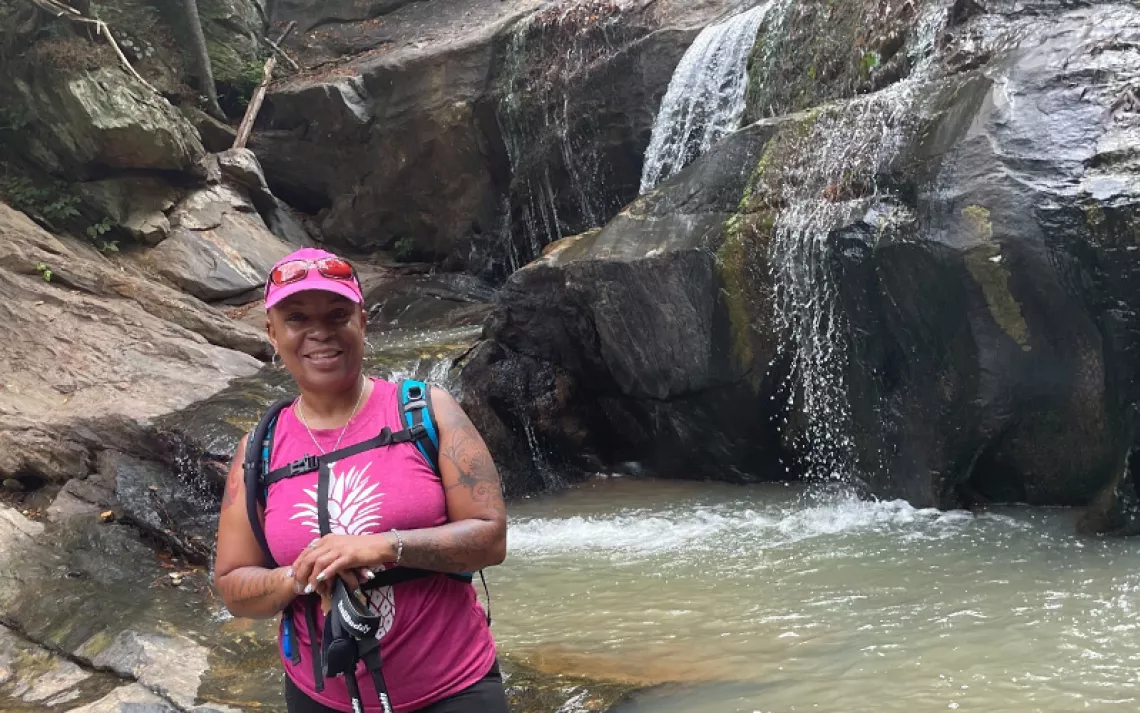How to Heal the Wounds of War
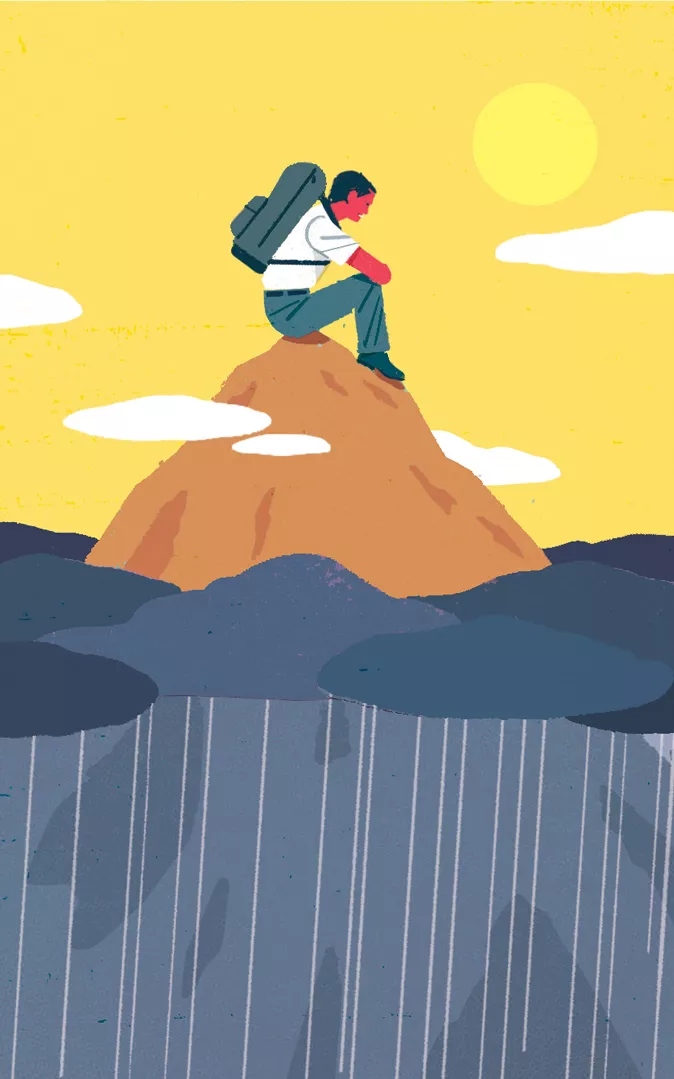
The Sierra Club firmly believes in the healing power of wilderness. | Illustration by Chris Gash
Alaska's Arctic National Wildlife Refuge is the biggest, wildest, most awe-inspiring landscape I have ever experienced. Any visit to its imposing mountains, swift rivers, and golden tundra is guaranteed to be powerful. But what stuck with me after my most recent trip to the refuge, last summer, was not the scenery or the wildlife: It was the healing power of wilderness.
Nine of us gathered for a week on the Kongakut River, paddling from the Brooks Range down to the Beaufort Sea. Two of our number, BriGette McCoy and Genevieve Chase, were military veterans.
Chase served with the U.S. Army's 10th Mountain Division and is the founder and executive director of American Women Veterans. While she was deployed in Afghanistan in 2006, her armored truck was attacked by a suicide vehicle carrying explosives. Everyone in her vehicle survived but suffered varying degrees of brain injury and post-traumatic stress disorder. Now in the army reserve, Chase has dedicated herself to helping other women veterans and their families.
McCoy is the daughter and granddaughter of Vietnam War and World War II veterans. After growing up in South Central Los Angeles, she enlisted in the army in 1987 and served in Germany as a data telecommunications specialist. Her post-traumatic stress disorder, which went undiagnosed for more than 15 years, was caused not by combat but by sexual assault and harassment, which ultimately forced her to end her military career.
For years, McCoy struggled without help. Anxious and depressed, she was sometimes unable to leave her house. Eventually she realized that she was not alone; according to the Department of Defense, an estimated 26,000 people in the military were sexually assaulted in 2012, the most recent year for which data is available. McCoy founded Women Veteran Social Justice, which seeks to connect, educate, and empower veteran women.
There's something else you should know about McCoy: This expedition to the most remote wilderness in North America was her very first camping trip. Talk about diving into the deep end.
Roughly 20 percent of Iraq and Afghanistan veterans have post-traumatic stress disorder, which can lead to alcohol or drug abuse, domestic violence, or even suicide. People who care about helping these vets are learning that getting them outdoors and into wilderness can be a powerful remedy.
On the trips organized by the Sierra Club's Military Outdoors program, which started in 2011, we've seen the difference that time in nature makes. I have zero doubt about the healing power of wilderness for veterans (or anyone else), but I'm not in charge of the U.S. Department of Veteran Affairs. To win more support for helping vets get outdoors, we need quantifiable evidence. To that end, the Sierra Club has formed a partnership with the University of California, Berkeley's Greater Good Lab—it's called the Great Outdoors Lab. The goal is to measure the effects that outdoor experiences have on groups such as veterans and at-risk youths. Many of the trips for veterans organized through Sierra Club Military Outdoors will be part of this research.

Sign up to receive Sierra News & Views
Get articles like this one sent directly to your inbox weekly.
With this action you affirm you want to receive Sierra Club communications and may vote on policy designated by the Sierra Club Board.
But we aren't going to wait for the results before we expand our own programs. If you're a veteran, or know one who might be interested, you can find out more at Sierra Club Military Outdoors. In addition, all service veterans are eligible for a 10 percent discount on any trip offered by Sierra Club Outings.
The Sierra Club is proud to help veterans and honored to have them stand with us in support of public lands such as the Arctic National Wildlife Refuge. "I served my country to protect the people and the land," says McCoy. "I see them as one."
This article appeared as "Nature's Healing Power" in the November/December 2015 print edition of Sierra.
 The Magazine of The Sierra Club
The Magazine of The Sierra Club
